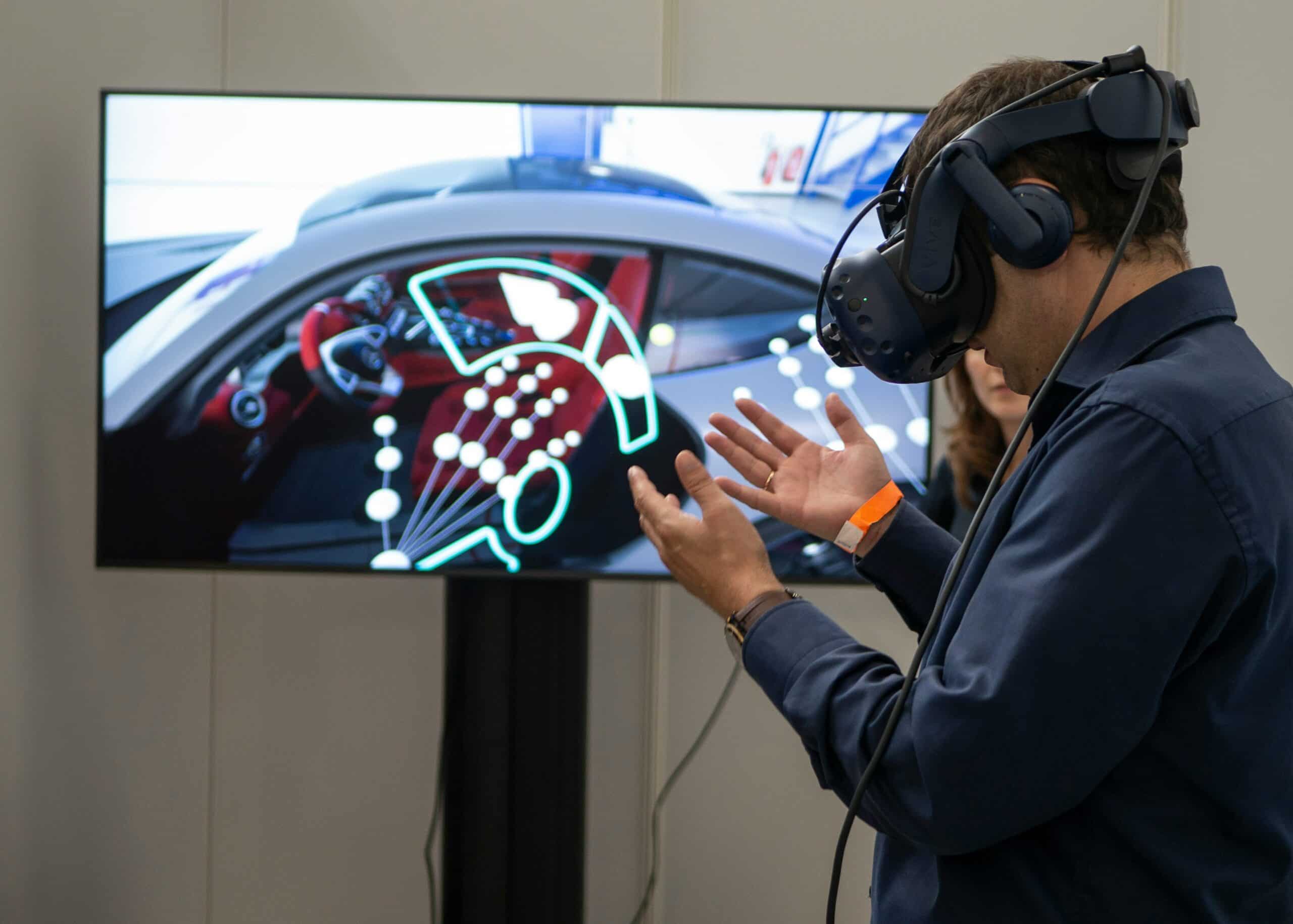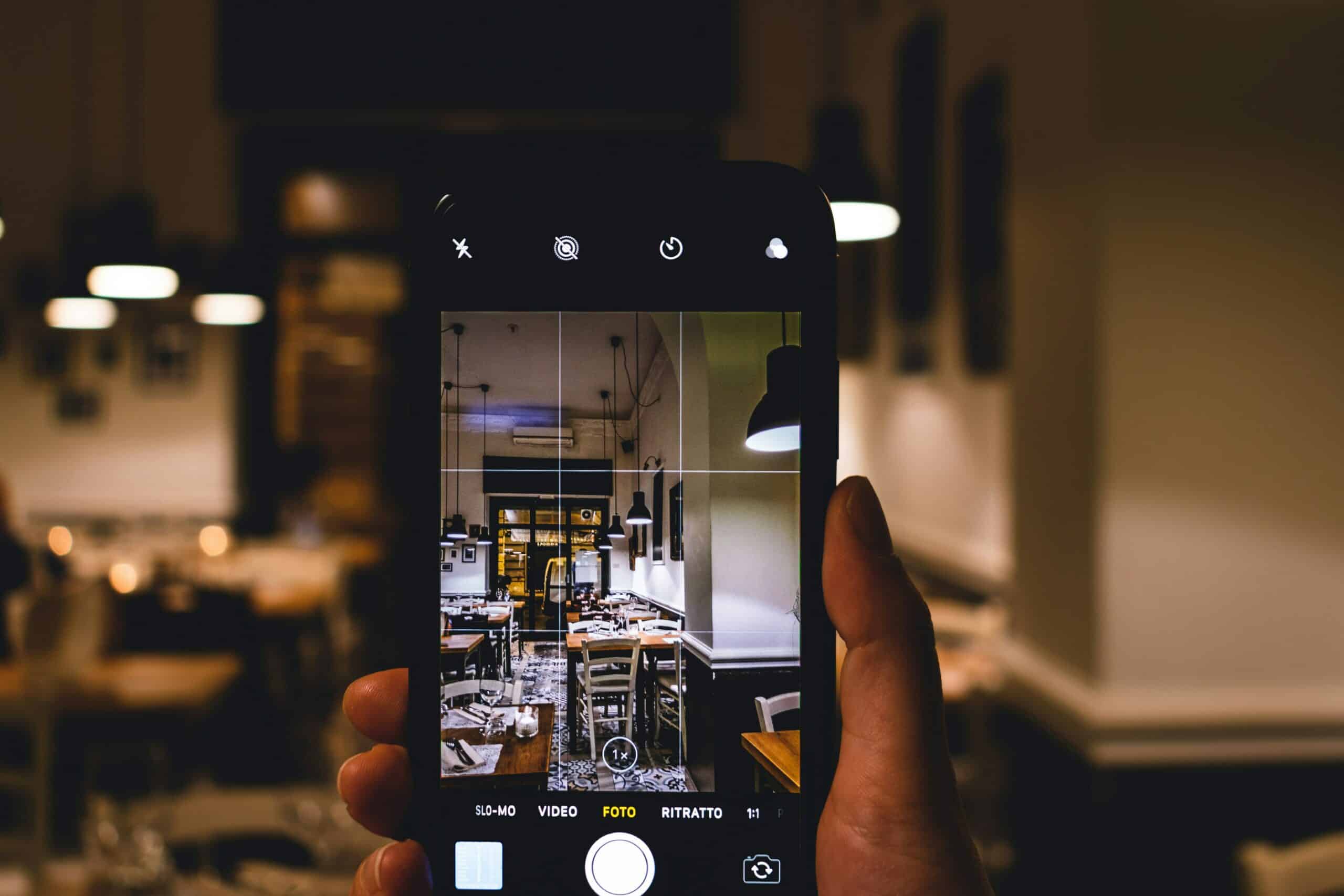As the online advertising landscape changes rapidly, businesses continue to turn to Facebook to connect with their audience. With new technologies and evolving consumer behavior, advertisers must adapt. This requires a fusion of creativity and analytics to transform the way brands utilize Facebook to engage with potential customers.
In this article, we’ll unpack the latest actionable insights from elite training programs to help advertisers harness the full potential of Facebook advertising in future trends.
Keep reading to discover how these developments can add momentum to your marketing strategy.
Key Takeaways
- AI and Augmented Reality Are Transforming Facebook Advertising With Personalized, Interactive Experiences
- Video Content Dominates Facebook Ads, Leveraging Dynamic Storytelling and User-Generated Material
- Privacy-Focused Strategies Are Becoming Integral as Advertisers Navigate Stricter Data Protection Laws
- Chatbots and Predictive Analytics Offer Efficient, Tailored Customer Interactions
- Training Programs on Emerging Technologies and Privacy Regulations Are Key for Effective Facebook Advertising
Emerging Trends in Facebook Advertising

In today’s digital marketing landscape, Facebook advertisers are quickly adapting to new technologies and changing consumer behaviors. Key players are leveraging artificial intelligence and machine learning to optimize ads with precision. There’s also a growing demand for dynamic video content, and augmented reality is offering immersive experiences. Additionally, user-generated content is gaining traction for its authentic appeal.
The personal touch doesn’t end there; messenger bots are becoming the go-to tool for delivering personalized ad experiences directly to a user’s inbox.
Amidst all these advancements, a privacy-first approach is becoming essential, requiring advertisers to balance innovation with respect for consumer data protection.
Rise of AI and Machine Learning in Ad Optimization
In the realm of Facebook advertising, the integration of artificial intelligence (AI) and machine learning is not just a trend; it’s revolutionizing the way campaigns are managed and optimized. Advertisers can now utilize these technologies to analyze data at scale, predict which content will perform best with their target audience, and automate the most mundane tasks, freeing up time to focus on strategic decision-making.
The Growth of Video Content in Ads
Facebook’s advertising terrain is seeing a noticeable shift toward video content, captivating users with engaging stories and dynamic visuals. This visual approach amplifies message retention and encourages sharing, multiplying a brand’s reach. Videos are becoming an integral tool for marketers to connect with their audience on an emotional and experiential level.
The Shift Towards Augmented Reality Experiences
Augmented reality is taking Facebook advertising into the future, offering users a captivating and interactive way to engage with brands. By blending digital elements with the real world, advertisers can craft unique experiences that stand out in a crowded marketplace and encourage users to connect with their brand on a deeper level.
Increase in User-Generated Content in Ads
User-generated content is quickly becoming the heartbeat of Facebook advertising, with businesses harnessing the stories and images shared by their community. This approach bolsters credibility and brand loyalty and taps into consumers’ intrinsic desire for authenticity. Facebook ads featuring real customer experiences are forging stronger connections, bringing to the mix a trust factor that polished, professional content struggles to match.
Leveraging Messenger Bots for Personalized Ads
Within Facebook’s bustling market, messenger bots stand out as a pivotal innovation for advertisers striving for personalization. They enable a more direct and intimate touchpoint by providing tailored advice, recommendations, or even handling transactions within the message interface. Embracing messenger bots allows businesses to deliver an enhanced and responsive customer experience right where their audience is most active.
Privacy-First Advertising Strategies
As companies navigate the evolving data-use expectations, privacy-first strategies in Facebook advertising are becoming non-negotiable. Training programs now emphasize the importance of transparent data practices and the need for advertisers to gain trust by safeguarding user information. Adopting a privacy-first mindset aligns with new regulations and reassures the audience, creating a more secure and respectful environment for online interactions.
The Role of Artificial Intelligence in Facebook Ads

The digital frontier of Facebook advertising is being transformed by the power of Artificial Intelligence (AI), driving efficiency and effectiveness. With predictive analytics, AI hones in on the right audience, ensures that ads reach individuals most likely to engage, and optimizes ad spending in real-time bidding wars.
Predictive Analytics for Targeting
Predictive analytics is reshaping Facebook’s ad targeting by utilizing vast amounts of data to forecast user behavior and preferences. This leading-edge tool from AI helps companies pinpoint their advertisements to individuals who show the highest likelihood of interest and engagement, thereby increasing the efficiency of marketing budgets and boosting conversion rates.
AI-Driven Creative Optimization
In the vanguard of Facebook advertising trends, AI-driven creative optimization emerges as a game-changer. AI fine-tunes ad visuals and copies by analyzing user engagement and behavior to capture attention more effectively. This elevates user experience and boosts campaign performance, ensuring that each creative element resonates with the intended audience.
Automated Bidding Strategies
Automated bidding strategies in Facebook advertising represent a significant shift toward data-driven decision-making. By leveraging machine learning, these strategies allow for real-time bid adjustments that optimize advertising spending for maximum return on investment. As a result, advertisers can allocate their budgets more effectively, reaching the right audience at the right cost without constant manual intervention.
- Machine learning calculates optimal bid amounts.
- Real-time adjustments enhance ad spend efficiency.
- Advertisers save time with reduced manual oversight.
Chatbots for Enhanced Customer Interaction
Chatbots are proving indispensable for improving customer interaction in the swiftly changing landscape of Facebook advertising. They address queries, provide product recommendations, and facilitate purchases directly within the Facebook messaging environment, streamlining the customer journey and fostering a sense of immediate support.
- Chatbots handle customer inquiries promptly, enhancing service responsiveness.
- They deliver tailored product suggestions, personalizing the shopping experience.
- By enabling in-chat transactions, chatbots simplify the path to purchase.
Leveraging Video Content for Engagement

Video content has become a dominating force in Facebook advertising, focusing on short-form videos, live streaming, and user-generated content to drive engagement and authenticity.
These innovative video advertising approaches shape how brands interact and engage with their customers on Facebook.
Short-Form Videos Driving Higher Engagement
Advertisers are recognizing the value of short-form videos, a vibrant tool in Facebook’s advertising arsenal that boasts quick engagement and spreads messages quickly. By capturing today’s online audiences’ notoriously short attention span, these concise, often energetic clips are masterful in driving interest and action. Companies keen on stoking the fires of engagement are turning to this format, knowing that a compelling short video can provoke immediate reactions and shares, fueling a turbo-charged boost to their advertising campaigns.
Live Streaming as a Tool for Real-Time Engagement
In the age where on-the-spot experiences reign supreme, live streaming on Facebook offers a unique opportunity for real-time engagement. Brands harness this tool to invite their audience into events, behind-the-scenes sneak peeks, and live Q&A sessions, creating an immediate connection that recorded videos cannot match. This immersive form of content garners high levels of interaction as viewers participate in the live experience, ask questions, and react in the moment.
Incorporating User-Generated Content in Video Ads
User-generated content transforms video advertising on Facebook, providing brands with a treasure trove of authentic material. When companies feature real-life customer videos in their ads, the relatability skyrockets, encouraging a deeper connection between viewers and the brand. This strategy not only enhances trust but also leverages the voices of satisfied customers to speak directly to potential buyers.
The Future of Augmented Reality in Ads

The rise of Augmented Reality (AR) in Facebook advertising is reshaping the consumer experience. AR enhances online shopping with try-on experiences and amplifies ad interactivity. Additionally, AR filters have become a staple in brand promotion, creating memorable and shareable content.
As AR weaves its digital threads through the fabric of advertising, its integration will clearly play a pivotal role in the evolution of marketing strategies on the Facebook platform.
AR for Try-on Experiences
Facebook advertising is entering a dynamic era where Augmented Reality (AR) enhances the shopping experience with try-on features. This advanced functionality allows a user to virtually try on products like glasses, makeup, or clothing through their device’s camera, creating an engaging and interactive shopping moment. This trend is rapidly gaining traction as it helps to eliminate the guesswork associated with online shopping, providing customers with a surprisingly real substitute for the in-store experience.
- AR try-on features enable interactive product previews.
- Users can experience products at home, reducing uncertainty.
- Virtual try-ons are set to revolutionize online shopping engagement.
Enhancing Ad Interactivity With AR
Augmented Reality (AR) is setting the stage for a new era of interactivity within Facebook ads, inviting users to engage in a hands-on digital experience. By overlaying computer-generated imagery onto a live view of the physical world, AR ads are seen and felt, offering a tactile dimension to the digital realm. This powerful feature is steadily becoming a fundamental part of advertising on Facebook, as it provides a novel way for brands to captivate and hold their audience’s attention.
AR Filters for Brand Promotion
Brands seeking novel ways to engage with Facebook users turn to AR filters as a powerful promotional tool. These filters allow them to craft interactive, branded experiences that resonate with users. When used creatively, these filters can significantly amplify a brand’s visibility and help it stand out in a crowded digital landscape, making AR filters a key player in the future of Facebook advertising.
The Significance of User-Generated Content

In today’s social media marketing, user-generated content (UGC) is crucial for Facebook advertising. It’s about sparking genuine conversations and inviting customers to contribute their voices. Companies recognize the value of customer participation through authentic UGC, which builds trust and drives conversions.
Including UGC in campaigns paints a brand in a trustworthy light and demonstrates a commitment to fostering community. It further engages Facebook users and leads to more impactful advertising results.
Encouraging User Participation
Fostering user contributions has become a staple of successful Facebook advertising campaigns. Companies are turning their customer base into active participants and content creators by inviting the audience to share their stories, photos, or reviews. This strategy enriches the brand’s narrative and stokes a sense of ownership among users who see their contributions valued and shared.
- Companies incentivize user participation with contests and rewards.
- Brand hashtags encourage the sharing of user-generated content.
- Engaging prompts and questions spark user responses and conversation.
Building Trust Through Authentic Content
Building trust with Facebook audiences hinges on the authenticity of brand content. When businesses showcase genuine reviews, unedited images, and raw videos from their customers, they’re not just sharing material but fostering a foundation of credibility. This transparency resonates with viewers and can convert skepticism into trust, as the content reflects real-world experiences rather than polished marketing narratives.
Brands curating authentic user testimonials can expect a higher audience engagement.
- Real customer stories enhance the relatability of a brand’s marketing message.
- Unfiltered content from users often outperforms studio-produced advertisements in establishing trust.
UGC Campaigns for Higher Conversion Rates
User-generated content (UGC) campaigns are proving to be a formidable asset in elevating conversion rates on Facebook advertising. By showcasing authentic interactions and endorsements from users, brands garner increased trust and witness a notable uptick in user engagement and purchasing behavior.
Adapting to Privacy Regulations in Facebook Advertising

Ad targeting practices are evolving to comply with strict data privacy laws like GDPR. Businesses are now focusing on innovative, privacy-centric techniques for ad customization to balance personalization with data protection.
This transition is reshaping marketing practices and setting new standards for responsible advertising in the digital era.
Impact of GDPR on Ad Targeting
The General Data Protection Regulation (GDPR) has compelled organizations to overhaul their Facebook ad targeting approaches, emphasizing user consent and the ethical use of personal data. This shift pushes advertisers to refine their strategies, ensuring that they engage with audiences in a way that respects their privacy while still delivering relevant and effective advertising content.
Strategies for Data Privacy Compliance
To ensure compliance with data privacy regulations in Facebook advertising, companies are investing in training programs emphasizing transparency and user consent. These programs guide businesses in implementing compliant advertising techniques that safeguard user data while still effectively engaging the audience, ensuring a harmonious balance between marketing goals and privacy standards.
Privacy-Centric Ad Customization Techniques
Facebook advertising innovates with privacy-centric strategies that personalize ads without compromising user data. Advertisers can curate tailored messages that resonate with audiences while adhering to privacy norms by utilizing anonymized and aggregated data. Such techniques redefine the balance between creating relevant ads and committing to user privacy on the platform.
Insights From Top Facebook Advertising Training Programs

As Facebook advertising evolves, mastering AI, machine learning, video, augmented reality, and privacy regulations is crucial for successful ad campaigns.
Such education equips professionals with key competencies and prepares them to set and follow best practices in a rapidly changing advertising landscape.
Key Skills for the Future of Facebook Advertising
The future of Facebook advertising hinges on professionals mastering skills in creativity and analytics and understanding the interplay between machine learning and human intuition. Staying ahead of the curve will require marketers to blend the art of storytelling with the science of data-driven strategy, ensuring ads are both emotionally compelling and optimized for performance. Emphasis on privacy and ethical targeting will also be critical, challenging advertisers to innovate within consumer consent and trust boundaries.
Advanced Training in AI and Machine Learning
Top Facebook advertising training programs now prioritize advanced training on AI and machine learning, equipping marketers with the knowledge to tap into sophisticated algorithms for enhanced targeting and ad performance. By mastering these cutting-edge technologies, professionals can tailor campaigns that respond dynamically to audience behavior, driving more effective engagements and measurable outcomes.
Best Practices for Video and AR Content
Top training programs focused on Facebook advertising spotlight the creation and implementation of video and augmented reality (AR) content as a vital component of engaging modern audiences. They stress the importance of storytelling through video to forge an emotional connection while recommending the use of AR to create immersive and memorable ad experiences that can significantly boost viewer interaction. As these technologies become mainstays in marketing, understanding how to integrate them effectively into advertising efforts is critical for capturing audience attention and driving meaningful engagement.
Navigating Privacy Concerns in Digital Advertising
In the digital advertising landscape, top Facebook training programs are placing a strong emphasis on navigating privacy concerns. As regulations tighten and public scrutiny intensifies, these programs teach advertisers how to respect user privacy while still delivering impactful campaigns: identifying data collection boundaries, securing consent properly, and exploring alternative targeting methods that do not compromise personal information.
- Identifying the scope and limitations of data collection practices in the context of advertising.
- Securing user consent through clarity and transparency in data usage policies.
- Exploring innovative targeting methods that prioritize user privacy without hindering ad effectiveness.
Conclusion
Top training programs in Facebook advertising emphasize the critical integration of AI and machine learning to sharpen ad targeting and content personalization.
They highlight the increasing significance of video and augmented reality content in engaging audiences and creating immersive ad experiences.
Education on adapting to stringent privacy regulations ensures that advertisers can maintain ethical standards while crafting effective campaigns.
By mastering these emerging trends, advertisers can future-proof their strategies and sustain a competitive edge in a rapidly evolving digital advertising landscape.



